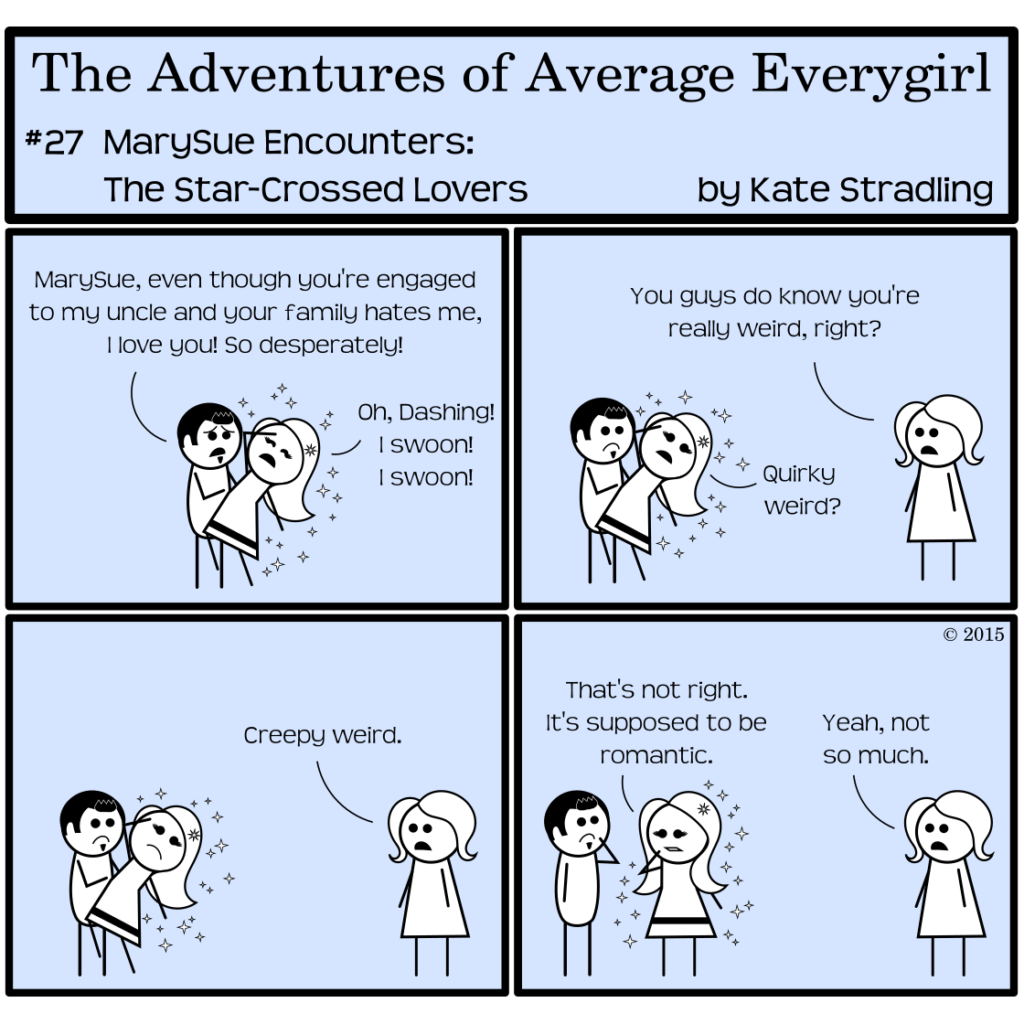
Tired of boring, old-fashioned logic? Why not try a more scintillating trope?
All-Purpose Recipe for Star-crossed Lovers
- 1 set of cross-purposed circumstances
- 1 narrow window of opportunity
- 2 parts high stakes on the line
- 2 ridiculously romance-minded participants
Pour together into plot and mix until everything is dead. Serve chilled.
What if we don’t, tho
In the interest of fairness, I have wracked my brains for a Star-crossed Lovers scenario that I actually enjoy. To my surprise and delight, I arrived at an answer: Roman Holiday (1953).
A news reporter, Joe, meets a runaway princess, Ann, in 1950s Rome. They spend a lovely day together doing all the common things she hasn’t been allowed to do because of her titled position. In the end, they part ways and return to their respective lives, enriched by the experience.
No one dies, no one gets maimed, no one pines away the rest of their life in misery. Their time together bolsters them to move on separately with hope rather than despair, logic anchoring them in lieu of overwrought emotions.
It’s almost the anti-Star-crossed Lovers.
But for the sake of the trope, let’s break it down:
- The cross-purposed circumstances: He is a news reporter seeking a story; she is a princess seeking to remain anonymous. His employer pressures him for a scoop; her handlers pressure her to conform to expectations.
- The narrow window of opportunity: One day in Rome
- The high stakes: His job is on the line if he doesn’t get a good story; her country’s dignity is on the line if she’s discovered gallivanting around town. She wants to avoid scandal, and he has every incentive to create it.
So what makes this story’s outcome so different than your run-of-the-mill Star-crossed Lovers?
Logic. Duty. Honor. And two participants capable of weighing their priorities correctly.
In the end, Joe and Ann protect one another by parting ways. They sacrifice, not for selfish personal gratification, but for others. Ann recognizes the duties she holds to her people. Joe recognizes that respecting her privacy is more important than any professional accolades he might receive. He could betray her or blackmail her. She could probably have him disposed of. Neither uses their power over the other for evil or coercion, though.
It really is a beautiful story. Romantic, too. In fact, for me, the quiet reserve of Roman Holiday creates more romance than all the weeping and sighing and angst of Romeo and Juliet, Tristan and Isolde, Pyramus and Thisbe, etc. It uses the Star-crossed Lovers trope to good purpose, allowing each character to triumph individually instead of making them co-dependent upon one another.
It’s the Star-crossed Lovers with a heavy dose of maturity.
Who knew that simple logic could have such a startling effect?